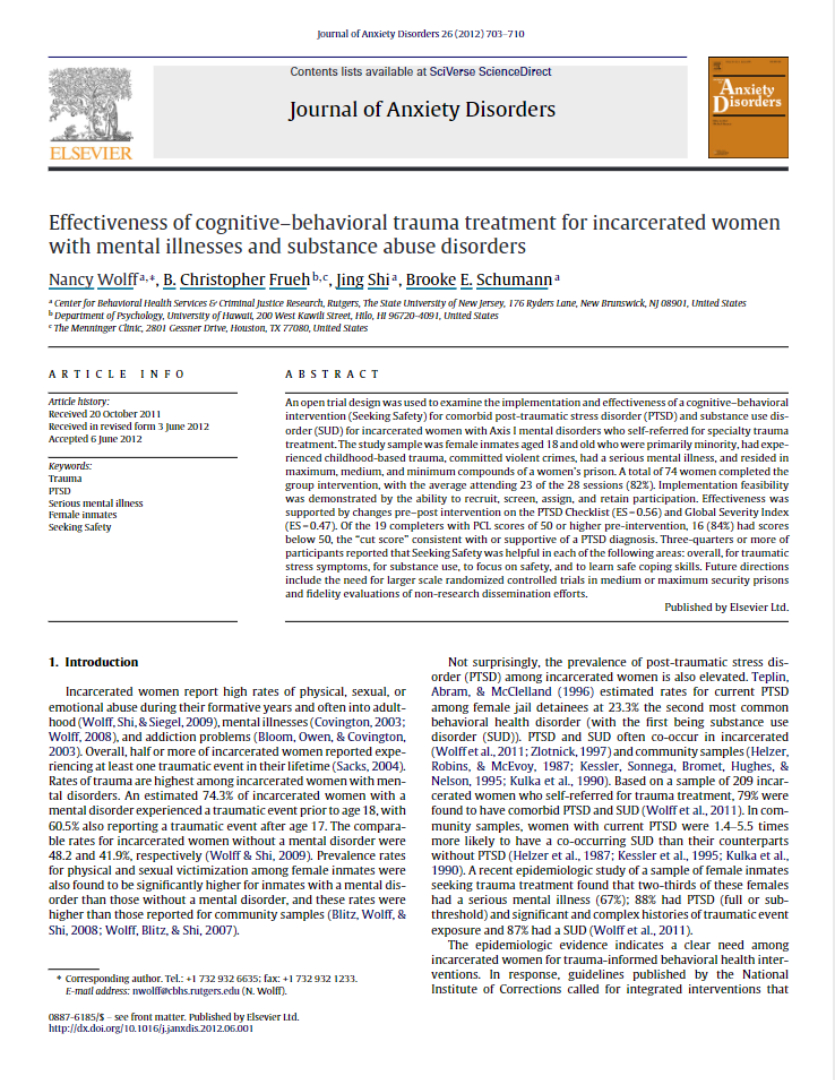An open trial design was used to examine the implementation and effectiveness of a cognitive–behavioral intervention (Seeking Safety) for comorbid post-traumatic stress disorder (PTSD) and substance use disorder (SUD) for incarcerated women with Axis I mental disorders who self-referred for specialty trauma treatment. The study sample was female inmates aged 18 and old who were primarily minority, had experienced childhood-based trauma, committed violent crimes, had a serious mental illness, and resided in maximum, medium, and minimum compounds of a women’s prison. A total of 74 women completed the group intervention, with the average attending 23 of the 28 sessions (82%). Implementation feasibility was demonstrated by the ability to recruit, screen, assign, and retain participation. Effectiveness was supported by changes pre–post intervention on the PTSD Checklist (ES = 0.56) and Global Severity Index (ES = 0.47). Of the 19 completers with PCL scores of 50 or higher pre-intervention, 16 (84%) had scores below 50, the “cut score” consistent with or supportive of a PTSD diagnosis. Three-quarters or more of participants reported that Seeking Safety was helpful in each of the following areas: overall, for traumatic stress symptoms, for substance use, to focus on safety, and to learn safe coping skills. Future directions include the need for larger scale randomized controlled trials in medium or maximum security prisons and fidelity evaluations of non-research dissemination efforts.
Effectiveness of cognitive-behavioral trauma treatment for incarcerated women with mental illnesses and substance abuse disorders.
Citation:
Wolff, N., Frueh, B. C., Shi, J., & Schumann, B. (2012). Effectiveness of cognitive-behavioral trauma treatment for incarcerated women with mental illnesses and substance abuse disorders. Journal of Anxiety Disorders, 26, 703-710. doi: 1016/j.janxdis.2012.06.001
